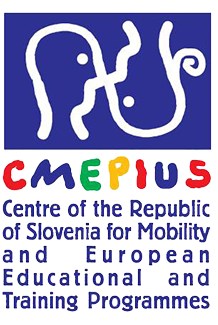The Project
Sustainable Accessible Future Environments (acronym SAFE) is a project concerned with the safe accessibility of urban areas. It is co-funded by the Erasmus + Programme of the European Union.
The selected urban areas of SAFE are Vantaa (Finland), Kiel (Germany), Bydgoszcz (Poland), Kranj (Slovenia), and Granada (Spain). Although not the most dangerous places in the world, there are many problems, especially visible on the grassroot level, in these cities.
The partners represent different fields of study, but combining their knowledge will generate a transdisciplinary partnership that searches for answers and solutions to the needs and problems in urban areas. The partnership also includes associate partners who represent different organizations and associations as well as the cities themselves.
Objectives
SAFE’s main objective is to increase the awareness of safe accessibility, diversity, and inclusion in selected urban areas, promoting the right to feel safe in cities including people with fewer opportunities, disabilities, and different cultural and socio-economic backgrounds in the EU.
The project will cooperate with target groups to create the learning materials and tools based on insight, experiences, and results from project activities. The context of the development work is transdisciplinary, joining people with different backgrounds, cultures, working methods, and disciplines, to create a sustainable working community to continue functioning in the future. By involving students in the project activities, partners will be able to offer interdisciplinary learning opportunities, awareness, and different skills related to cultures, diversity, inclusion, and safety. With the toolkit and innovative learning material, the learners and users will be aware of the situation with safe accessibility, diversity, and inclusion in the urban area in question.
The partners will create a joint, blended learning, international study module to offer the experiences and opportunities of SAFE to students even after the project ends. This way, what is started in SAFE, continues with new students and new findings that can be generated into solutions to make an urban area safer, more accessible, inclusive, diverse, and safe.
Implementation
SAFE focuses on activities that lead to increased awareness of safe accessibility, diversity, and inclusion in selected urban areas. The project activities concentrate on the urban areas in cooperation with the target groups and associate partners. Activities include practical examination and development of solutions to problems discovered in the urban areas during Intensive Study Programs (ISP) and other mappings.
The solutions are further developed into concepts and implemented in Futures Scenario Workshops with local actors and target groups. In all locations, the ISPs are later followed by the workshops. Side-by-side, different surveys are organized to collect data. Information is used to develop tools for a toolkit that will be tested in later ISPs. Multiplier events are held in each location, where results achieved so far are disseminated. Dissemination activities take place during the whole project. Also, partners will participate in conferences. Many target groups join in various tasks where they gain and share experiences. HEI staff and students participate in many activities, studies, development tasks, dissemination, etc. SAFE’s target groups are represented in all activities where environmental, cultural, and behavioral scanning takes place, when information is needed and when tools and solutions are tested.
Results
SAFE in the EU has an innovative approach; it will enrich the knowledge of different fields in a unique platform based on a cultural exchange of case-study knowledge in the development of urban spaces. This new interdisciplinary combination focuses on how to make urban areas more accessibly inclusive, safer, and sustainable. SAFE offers opportunities for people’s participation in democratic life, and also social and civic engagement through formal or non-formal learning activities. Further, SAFE promotes lifelong learning. With micro-courses leading to micro-credentials, the contents of the project are converted into learning material. SAFE implements a transdisciplinary approach and innovative pedagogies such as COIL and research-based learning. The project provides both intangible and tangible results during the project and when it is completed.
Examples of intangible results in project activities are:
- Increased awareness of a person’s impact in the sustainable development of accessible, inclusive, diverse, safe urban areas (democratic participation);
- Increased knowledge in regional, international, and intercultural cooperation through joint activities, workshops, multiplier events, policy recommendations, and dissemination activities;
- Skills enhanced and learned in Foresight, Futures & Design Thinking through joint activities, workshops, learning activities, and in the online training community.
- Increased level of digital competence through different activities.
Examples of tangible results are:
- Data on studies to share in open access repositories, such as EOSC or Zenodo;
- Improved solution concepts to problems discovered in each location, analyzed and developed further
- A digital toolkit
- Regional scenario books
- Min. 100 persons trained in Foresight & Futures Thinking scenario workshops
- Recommendations for policymakers and other actors
- Handbook and Case Studies
- Online Training Community for Inclusive Approach.


